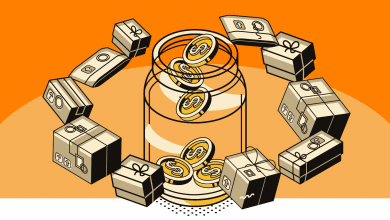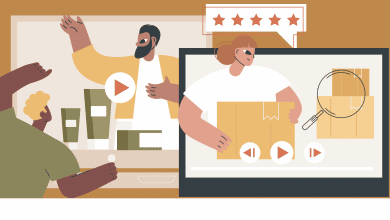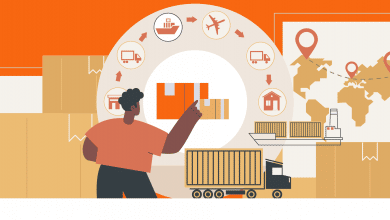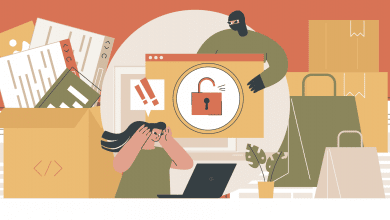
One of the fads that took off during the COVID-induced ecommerce boom of 2020-2022 were FBA Aggregators/Rollups. These companies sought to consolidate many ecommerce brands under one company, achieve huge economies of scale, and then (hopefully) go public at some crazy valuation.
Now despite a lot of predictable hiccups in executing this business model, FBA rollups and aggregators continue to exist. In this article we'll review what exactly FBA aggregators are, who they are and who is and isn't still around.
Related Listening: Episode 364: The Controversy Behind the FBA Rollup Strategy
Complete List of Amazon FBA Aggregators
There are countless rollups out there but we’ve compiled a list of some of the most popular Amazon FBA Rollups in the table below:
List of FBA Aggregators That Are Bankrupt or No Longer Acquiring (Updated 2024)
Since 2023, numerous Amazon aggregator firms have either shifted focus from this business model or have been acquired or ceased operations altogether. This was highlighted by Thrasio's (once one of the leading FBA rollups) bankruptcy in late 2023. Based on our data, here's the list of FBA aggregators that are either no longer in business or no longer acquiring businesses:
| Name | Date Founded | Located | Situation |
|---|---|---|---|
| Boopos | 2021 | Spain | Transitioned to a new business model |
| Diverge Group | 2020 | UK | Transitioned to a new business model |
| Factory14 | 2018 | Luxembourg | Acquired by Razor Group |
| Flywheel Commerce | Unknown | US | Acquired by Olsam Group |
| Inflection Brands | 2019 | US | Transitioned to a new business model |
| Orange Brands | 2020 | Germany | Acquired by Berlin Brands Group |
| Tapuya Brands | 2021 | US | Acquired by Pilot Wave Holdings |
| Thirstii | 2019 | Germany | Acquired by Thrasio |
| Valoreo | 2020 | Mexico | Acquired by Razor Group |
| Zeelos | 2021 | Germany | No longer acquiring |
What’s an Amazon FBA Aggregator /Acquirer/Rollup?
An Amazon aggregator, rollup, or acquirer are all the same thing.
Amazon FBA Aggregators or are a group of investors that are interested in buying multiple Amazon FBA businesses and trying to both exploit economies of scale by bringing them all together and also capitalizing on low-selling multiples while also (hopefully) being able to list on public markets at high multiples. To give an example, most Amazon businesses typically sell at a 2-3.5x multiple (a multiple of their earnings) while companies listed on public stock markets can typically see valuations of 10x-50x (to give an example, Meta has a P/E ratio of about 30x). In other words, rollups we're looking to execute on valuation-arbitrage.
Entrepreneurs have always talked of selling their e-commerce company at some point in their business journey. If you don’t know how to start we recommend you to read our guide on How to Sell Your Ecommerce Company For Top Dollar.
What is an Amazon FBA Aggregator / Acquirer Looking for?
Despite the changing market for FBA rollups, many are still acquiring. So what exactly are they looking to buy? Each Amazon FBA Business Acquirers has its own criteria, but there are some general requirements that everyone will have to follow, such as:
- Private Labeled Products: You sell your own branded products – most rollups aren’t looking for retail arbitragers or drop shippers.
- Profits & Margins: Ultimately, aggregators are looking for profits. If your brand isn't profitable there'll be very limited interest from any buyer. Rollups also prefer strong margins – some will require a minimum of 15% net margins and some will be agreed with 10% net margins.
- Brand Registry: You have registered under Brand Registry your trademarks, i.e. you have a defensible brand.
- Sales: depending on the acquirer, some will ask you a minimum of 80% of sales through Amazon and some others will ask you a minimum of 30%. It’s one case where diversification isn’t always a selling point.
- Amazon Fulfilment (FBA): Many sellers are still merchant fulfilled but the majority of rollups are looking to avoid brands that rely on in-house logistics. Being part of the Fulfilled by Amazon program will be one of the strong points of valuation since most of the acquirers don’t want to deal with logistics services and because of the simple reason that your product/s will have Prime status.
- No Black Hat Tactics: If you have made a deal with the devil that may result in the deactivation of your account, no acquirers will want to have to do with it.
- Not a fad: acquirers want a forward-looking business, nothing short-lived. Acquirers are looking for businesses and products that have a great scope that sells today and tomorrow.
Have you sold your ecommerce business to any Amazon FBA acquirer? How was your experience? Tell us about it in the comments section below.





Hi Guys,
We were hoping to get some direction to an ongoing issue.
1. We are a New Zealand company (Limited Company)
2. We will soon be required to get Liability insurance as per Amazon’s policy/requirements
3. As we are a New Zealand-based company – do you have direction, as to various insurance businesses who would insure us ?
4. What we have found recently – is that USA – based insurance companies, will only insure us, if we have a US-based LLC + EIN + US-mailing address
5. As Canadian companies yourselves – maybe you have found insurance businesses that have both met your needs, & maybe ours too !
Best Regards,
Charlie. B
Get insurance from a local NZ broker. You’re going to pay through your teeth but you can get it. We did.
Interesting to see how dynamic this industry is. I work with Mantaro Brands, a global aggregator looking to acquire great brands in 2023, can we get included in this list? Thanks
Please, send us an email to support@ecomcrew.com and we’ll be happy to add Mantaro Brands to the list.